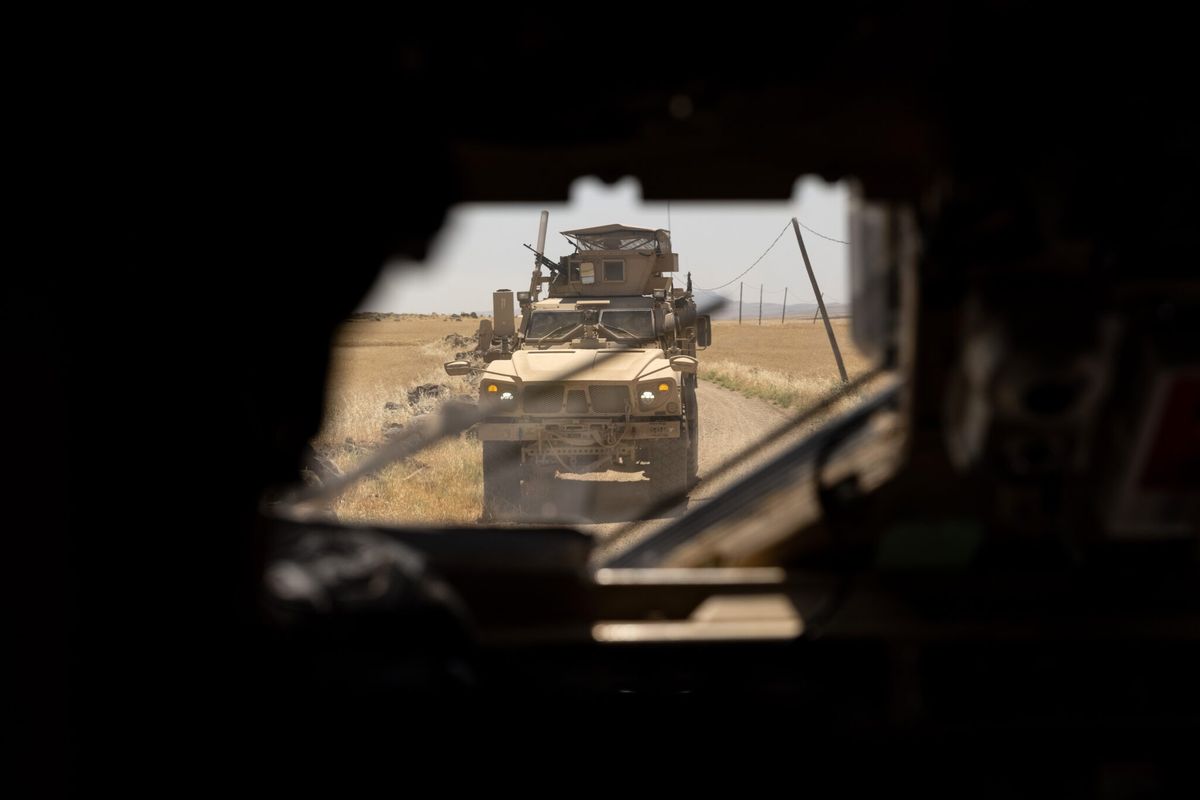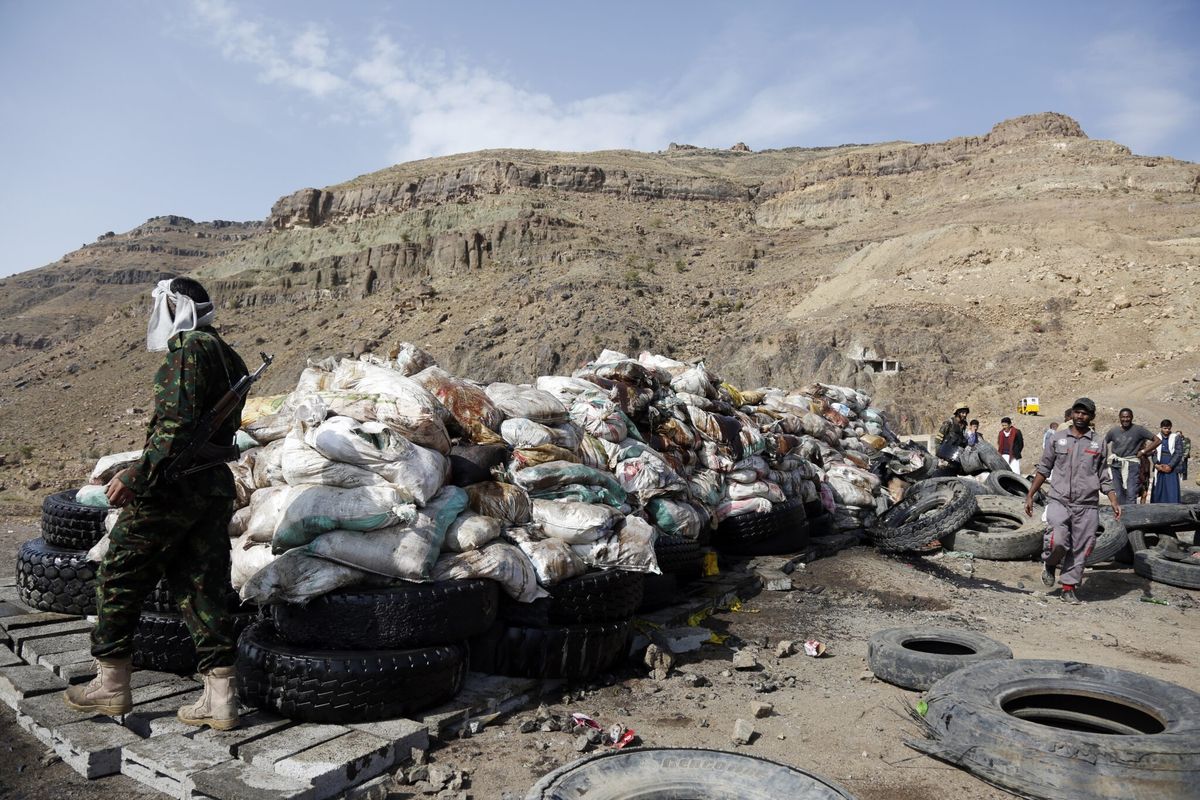When I landed in Damascus in late 2005 as a foreign correspondent, I went looking for the most popular place where young Syrians spend their time. I found the American Cultural Center (ACC) to be one of the more popular hangouts with a staunchly loyal clientele. Housed inside an apartment building near the U.S. Embassy in west Damascus, the ACC became particularly crowded on film night, a weekly event where American films with a specific theme were screened and a discussion followed. There was Women’s History Month, African American Month, Native American Month, and the list went on. Young Syrian adults would skip their highly prized social mingling at coffee shops and instead show up at the ACC, some armed with pens and notepads, eager to ask questions about real life in America and the extent to which it resembled the movies.
The U.S. Embassy staff that I got to know during that time were just as enthusiastic about the affair, a chance to interact with curious locals who were eager to absorb American soft power.
But all of that abruptly stopped in October of 2008, when the Syrian authorities shut down the ACC, along with the American School, in response to a U.S. commando strike inside Syrian airspace. Syria said eight civilians were killed in the attack, but American officials said the raid had targeted an Iraqi militant responsible for running weapons and foreign fighters across the border into Iraq. Whatever the story, it was a mere data point in a long list of low-grade hostilities between Damascus and Washington. In February of 2005, the Bush Administration pulled out its ambassador after accusing the Assad regime of assassinating the Western-friendly Lebanese Prime Minister Rafik al Hariri. Leading up to that point are decades of half-hearted U.S. covert operations inside Syria, sometimes in coordination with Israeli special forces.
Fast forward to the uprising in March 2011, when the U.S. quickly discovered it had little or no leverage in Syria and was therefore limited to making public statements that condemned the Assad regime’s violent crackdown on peaceful demonstrators. These statements have long been deemed inconsequential to developments on the ground.
Such is the reality of a relationship long severed and ignored. The Obama Administration now finds it can wield influence on the outcome of the war in Syria only through a proxy of Arab allies whose interests do not always align with those of the U.S. State Department officials will privately complain that “we have no eyes and ears inside Syria” and that on the few occasions that Americans make direct contact with Syrians inside, the Americans are unable to understand much, because their Arabic language skills are not up to the task.
Surely Washington can do better than this. Shifting sands in Syria and throughout the region should act as a wakeup call to dramatically shift Washington’s policies.
Start by shedding the antiquated lens through which Syria has been perceived—something of a hinge point in Iran-Saudi proxy wars and a bête noir to be tamed for the security of Israel. Abandon the half-truths about the Assad regime, namely that it is secular. It is not. Bashar’s father, Hafez, was probably secular as an individual, as are his son and the Baath Party that has ruled the country since the early seventies. But the Assad regime has been unable to turn Syria into a secular state with a clear separation from religion. Before the war, Syrian citizens could not do the simplest things that are taken for granted in a secular country, from civil marriage to estate planning through an individual’s last will and testament. Like most Arab countries, Syria adheres to a mix of religious laws that govern personal affairs—whereby citizens have no choice but to abide by the rules of the religious institutions to which they belong by birth—and Napoleonic penal code that governs other aspects of the law.
Also, like most Arab countries, Syria’s grand mufti acquiesces to the regime and even issues fatwas to reinforce loyalty to the president, a trend that has only accelerated since the uprising-turned-civil war. (Note that in Shia-dominated countries like Iran, the religious establishment can be at odds with the political leadership. This is almost never the case in a Sunni-dominated country.)
And finally, Syria’s constitution under Assad has always stipulated that the president must be Muslim. What secular state makes a demand like that?
All of this mythology may have played into creating the status quo in U.S.-Syria relations. But it does not have to remain so. The next administration in Washington can play a more direct and positive role in helping to shape the future of Syria, a future that does not have to be in the image of the (oppressive) regimes of the Sunni Arab U.S. allies that have their own agendas, nor a fake “secular” and terribly oppressive model that resembles Egypt’s Al Sisi. A strong U.S. initiative with balance and integrity can also help achieve a lasting peace between Syria and Israel, and that alone can free up some creative thinking power among Washington’s policymakers.
A future Syria should reflect basic values held dear in America, like the rule of law, the pursuit of happiness, and the freedom to live in dignity. This can only be created by Syrians themselves, from the ground up. America can help a lot, if only it would change its ways.












